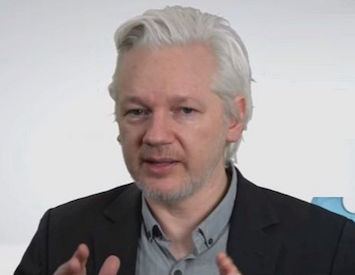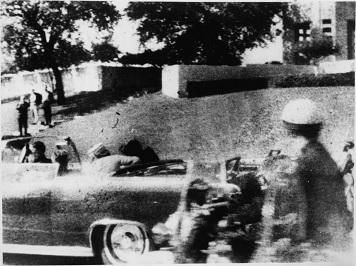James O'Neill discusses the international geopolitical ramifications of Turkey's failed coup for Russia, the U.S. and the long term stability of the region.
THE AFTERMATH of the recently failed coup in Turkey has significant geopolitical ramifications.
Typically, however, the western mainstream media have ignored these elements, preferring to focus on the purges currently underway across the military, the judiciary and academia.
These are usually portrayed as evidence of President Erdoğan’s autocratic ambitions.
Before looking at the aftermath, it is necessary to briefly look at several developments that preceded the coup, which were material to what later transpired. They offer a clue as to who planned the coup attempt, or simply supported it, expecting a benefit to accrue to them in turn.
It is well established that Turkey was a principal supporter of ISIS through a variety of measures. These included the re-supply of men and materials across the Syrian and Iraqi borders, the treatment of ISIS wounded in a Turkish hospital in which Erdogan’s daughter had an interest and the ongoing selling of stolen oil through a company in which Erdoğan’s son had an interest.
That support was exemplified in the shooting down of a Russian jet fighter over Syrian air space and the murder of one of its pilots as he parachuted down.
The support of ISIS created tensions in the Turkish military for a variety of reasons. Among these, is a general preference by the Turkish military not to engage beyond its borders (the Kurds being a challenge in their own right) and a secular tradition that sits uneasily with support for allegedly Islamic fanatics.
The shooting down of the Russian fighter jet had immediate consequences, with Russia imposing a variety of sanctions and a general freezing of economic relations. These had an immediate and significant deleterious impact upon the Turkish economy.
In the weeks before the coup attempt, Erdoğan had taken a number of initiatives that represented, collectively, a gradual repudiation of the U.S.-NATO led hostility to Syria and Russia. They marked, along with other developments, a re-orientation to the East.
These developments included, most importantly, establishing links with the Russian led Eurasian Economic Union (EEU) and the Chinese led Shanghai Cooperation Organisation (SCO).
That most western newspaper readers (and especially Australian) are largely unaware of the geopolitically transformative nature of these organisations is important. Without such knowledge it is impossible to understand many of the most important geopolitical developments occurring in the world today.
Both are key links in the world’s largest infrastructure project development, President Xi of China’s One Belt, One Road initiative, also known as the New Silk Roads. Most Australians remain in blissful ignorance of these transformative developments. Only when China ceases to want the minerals upon which Australia’s prosperity over the past forty years has largely been built, will the price to be paid for that ignorance (and attachment to American adventurism) become obvious.
It was this shift in Turkey’s geo-political direction that most alarmed Washington. At this stage, it is still unclear which of the multiple (at least four) competing Washington factions actually promoted this attempted coup. But the evidence that at least one of them did is steadily mounting.
Among the many clues as to American involvement are the following:
- The coup fighters were refueled from an American air tanker that took off from the NATO base at Incirlik.
- The coup’s navy vessels immediately stopped the transit of Russian ships through the Bosporus Strait.
- The initial American reaction to the coup attempt was markedly late and when it did come, its support for Erdoğan was lukewarm at best.
- The continued American harbouring of Fethullah Gülen, the aging cleric and CIA asset living under protection in Pennsylvania.
Erdoğan accused Gülen of being one of the plotters of the coup but this is really code language for blaming the Americans, about whom Erdoğan was equally blunt. Gülen is only a figurehead — he could do nothing without American knowledge and consent.
Some commentators have pointed to the speed with which Erdoğan has arrested, suspended, fired or otherwise restricted up to (at current figures) 50,000 individuals as evidence that this was a false flag operation designed to benefit Erdoğan himself.
This, however, is confused thinking and ignores a number of factors. Most importantly, it confuses foreknowledge and then taking maximum advantage of the situation, with being the actual instigator. While the latter is not impossible, the evidence for an alternative hypothesis is currently stronger.
That Erdoğan did have advance knowledge seems without doubt. The prime source of that knowledge appears to be the Russians who have a sophisticated listening base in northern Syria able to eavesdrop on Turkish military and other communications.
It is significant that the first major political figure to telephone Erdoğan and congratulate him on quashing the coup attempt was Russia’s President Putin. The two leaders will meet in Moscow next month.
The Russians have a more than passing interest in a friendly and stable Turkey. As a nation with a significant Muslim population in its southern regions and a long-standing target of American destabilisation from at least Operation Cyclone in the 1970s when the Soviet Union still existed, Russia has a well-founded fear of having to deal with multiple Chechnyas at a time of general redevelopment and reorientation to the East.
The Americans will not be pleased with these latest developments. The coup attempt may be seen in part as an attempt to prevent Turkey from going further along the path Erdoğan is clearly setting out.
We can expect to see further attempts at destabilisation including – but not limited to – further coup attempts.
James O'Neill is a former academic and has practiced as a barrister since 1984. He writes on geopolitical issues, with a special emphasis on international law and human rights. He may be contacted at joneill@qldbar.asn.au.

This work is licensed under a Creative Commons Attribution-NonCommercial-NoDerivs 3.0 Australia License
Monthly Donation
Single Donation
Keep up! Subscribe to IA for just $5.









